ITC judge finds Apple in violation of one Motorola Wi-Fi patent
The judge's findings are still subject to review by the six members of the ITC, according to Bloomberg. But the ruling by ITC Judge Thomas Pender puts Motorola one step closer to potentially blocking the importation of Apple devices like the iPhone and iPad.
Pender found that Apple violated just one of four patents that Motorola had claimed in its ITC case. Motorola Mobility's entire patent portfolio will soon be Google's, presuming Chinese authorities approve the $12.5 billion acquisition.
The other three patents cited by Motorola in the case are related to the way a server tracks available applications, proximity sensors to prevent accidental button presses, and another related to Wi-Fi.
Motorola first sued Apple for alleged patent infringement in October of 2010. The original complaint included 18 total patents, ranging from 3G, to GPRS, to 802.11 wireless and antenna design.
The decision revealed on Tuesday is the second victory in as many days for Motorola. On Monday, ITC Judge David Shaw ruled that Microsoft's Xbox gaming consoles infringe on patents owned by Motorola Mobility.
 Slash Lane
Slash Lane
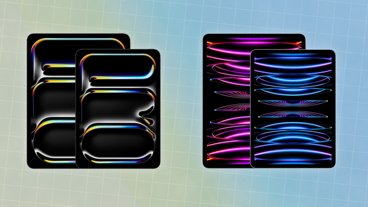
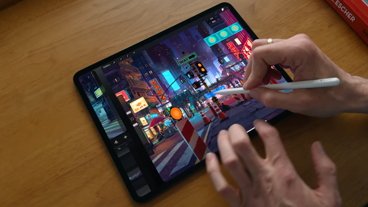

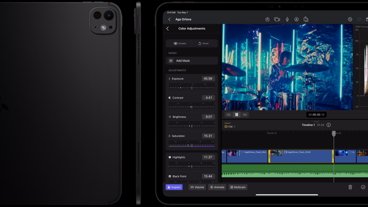



 Mike Wuerthele
Mike Wuerthele
 William Gallagher
William Gallagher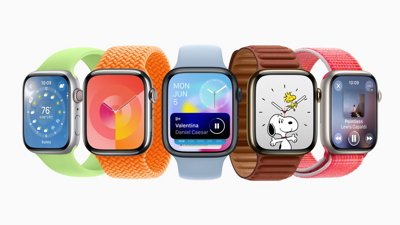
 Charles Martin
Charles Martin
 Christine McKee
Christine McKee
 Andrew Orr
Andrew Orr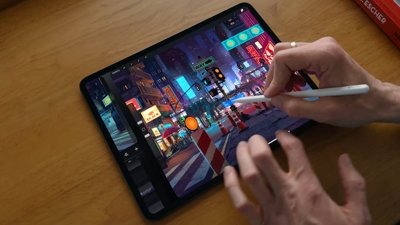
 Wesley Hilliard
Wesley Hilliard
 Malcolm Owen
Malcolm Owen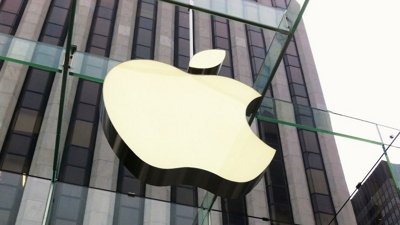

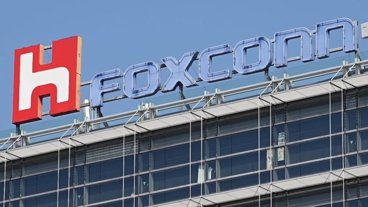








46 Comments
The judge's findings are still subject to review by the six members of the ITC, according to Bloomberg. But the ruling by ITC Judge Thomas Pender puts Motorola one step closer to potentially blocking the importation of Apple devices like the iPhone and iPad.
This sounds like very bad news for Apple.
That being said, I can't imagine that imports of Apple WiFi enabled devices will ever be banned. This can be solved by Apple paying money, so I don't understand how blocking imports would be a reasonable path to follow.
If the ITC is right about the merits, Apple can and will pony up.
What remedies are available with the ITC? I'm assuming that they can award damages, and not just issue injunctions.
Incredibly boring. In the end there will be cross licenses etc for the non essential patents and fair licenses for essential patents. And along the way Motorola will probably get their knuckles wrapped for trying to double dip on frand patents.
Incredibly boring. In the end there will be cross licenses etc for the non essential patents and fair licenses for essential patents. And along the way Motorola will probably get their knuckles wrapped for trying to double dip on frand patents.
What I find most annoying about this is that, once gain, Apple is accused of violating a FRAND-encumbered patent that Motorola has chosen to offer only in a discriminatory manner. I truly hope the EC and FTC look into these practices (by ALL parties) and takes action. My personal belief is that once a patent is declared standards-essential and available through FRAND terms, that the patent holder must publish pricing included any opportunity for discounts. "Non-discriminatory" should mean that all companies have access at the same price.
Incredibly boring. In the end there will be cross licenses etc for the non essential patents and fair licenses for essential patents.
The problem with this theory is that Apple is reputed to be unwilling to license some of their non-essential patents, and also IIRC owns relatively few essential patents.
If they can't or won't trade in patents, they might have little choice but to trade in dollars.
My personal belief is that once a patent is declared standards-essential and available through FRAND terms, that the patent holder must publish pricing included any opportunity for discounts. "Non-discriminatory" should mean that all companies have access at the same price.
Not all companies deserve the same price or terms. A company buying a small volume, who is also close to bankruptcy will not get the same terms as an industry giant who is willing, for example, to pay substantial interest (or maybe a higher price) for the priviledge of significant dating terms.
It would not make good economic sense to treat different customers all the same. No competent vendor does that.
Think about it this way: Say Samsung wanted to pay you a lot to use your tech in the new Galaxy S III, but wanted to delay payment until after the phone goes on sale. You might well agree to that.
But if RIM wanted to pay the same amount, and wanted to delay payment until after their new phone came out, you might turn that down, because you might be afraid that you would never get paid. Indeed, you might charge RIM a higher price and demand pre-payment on a certain guaranteed minimum volume (to cover, at least, your transaction costs).
Different buyers get different prices and different terms for different reasons.